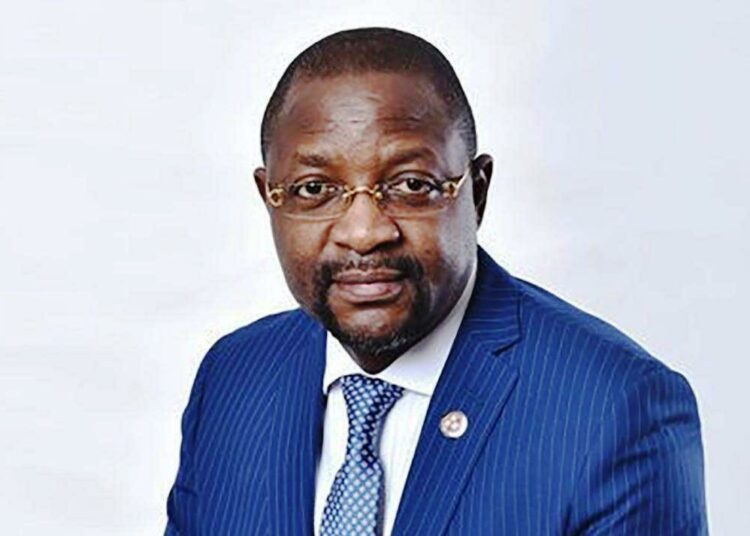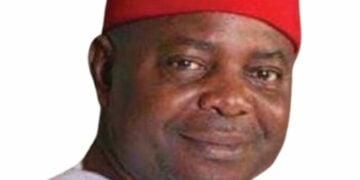Abuja, Nigeria – Two years into President Bola Ahmed Tinubu’s administration, Nigeria is undergoing a bold recalibration. A country once caught in the inertia of subsidy politics and policy hesitancy is now charting a new course, marked by structural reforms, fiscal reengineering, and renewed international engagement.
From the outset, President Tinubu signalled an intent to stabilise Nigeria’s economy and fundamentally reset it. As Nigeria arrives at the halfway mark of this administration’s tenure, early evidence suggests that this pivot is not only well underway – it is beginning to deliver.
The conversation is shifting: from managing crisis to managing opportunities; from firefighting to future-proofing; from legacy burdens to long-term strategy.
With a deliberate macroeconomic overhaul unfolding, Nigeria is positioning itself – not only as one of Africa’s largest economies by GDP – but also as one of its most reform-minded jurisdictions, willing to tackle its most entrenched distortions head-on.
Macroeconomic Reset: A Realignment With Market Reality
When the Tinubu administration took office in 2023, it inherited an economy under siege – one heavily reliant on fuel subsidies, riddled with dual exchange rate inefficiencies, weighed down by debt service pressures, and struggling with dwindling investor confidence.
In response, two politically risky but economically necessary reforms were immediately enacted: the removal of fuel subsidy, which had consumed up to $10 billion annually, and the liberalisation of the naira, ending a system that long distorted trade flows and incentivized arbitrage.
The results are starting to crystalise:
*GDP growth currently stands at 3.46% year-on-year, a significant rebound from contractionary trends and a sign that reform headwinds are giving way to recovery momentum.
*Net foreign reserves have increased to $40.1 billion, bolstering Nigeria’s external buffers and increasing its ability to defend currency stability in the near term.
*The debt service-to-revenue ratio has fallen sharply, from 97% in 2023 to 65%, easing fiscal pressure and allowing for more capital investment in growth sectors.
*As of December 31, 2023, the total public debt was $108.23 billion. However, as of December 31, 2024, the total public debt was reported as $94.23 billion. This indicates a decrease of approximately $14 billion over the one year – a signal that prudent debt management amidst a strong dollar environment is now in place.
*Domestic debt of Nigeria’s 36 states decreased by 32%, while their external debt grew by only 4%, reflecting improved subnational fiscal discipline and better debt structuring.
Currency markets are beginning to respond positively. After months of volatility, the naira has shown signs of stabilization, aided by robust monetary interventions from the Central Bank of Nigeria (CBN). The apex bank has adopted tighter monetary policies, improved liquidity controls, and recalibrated its intervention posture – moves that have enhanced credibility in the eyes of market participants.
Investor Confidence: Measurable Signals, Not Rhetoric
What distinguishes this phase of Nigeria’s economic reform is the data-backed credibility it brings. For years, international investors and multilaterals were told reform was coming.
Under Tinubu, it has arrived – and it is quantifiable.
*The Nigerian Stock Exchange has posted strong returns over the last year, with market capitalisation expanding and foreign participation gradually recovering.
*Foreign Direct Investment (FDI), long stymied by policy inconsistencies, is showing encouraging signs of a turnaround. Nigeria is streamlining business registration, simplifying tax codes, and reducing bureaucratic friction – factors that directly influence capital allocation.
*Oil production has risen to 1.7 million barrels per day, with operational improvements in the Niger Delta, and upstream investments resuming in marginal fields.
*Non-oil exports are growing through enhanced trade facilitation, duty incentives, and export financing schemes, driven in part by the African Continental Free Trade Area (AfCFTA) opportunity.
Nigeria posted a $6.83 billion Balance of Payments Surplus in 2024, signalling economic resurgence. According to the CBN, a Balance of Payments surplus of $6.83 billion is expected for 2024, marking a sharp turnaround from deficits in 2023 and 2022.
Corporate profits and revenues for giant companies operating in Nigeria are on the increase. Examples: MTN Nigeria’s revenue hits N1 trillion, Nestle posts N295 billion in record revenues, Zenith Bank’s quarterly income of N837.6 billion. Seplat’s threefold surge in pre-tax profit by 203.97 per cent (N314.646 billion). There are many more similar stories of profitability.
Inflation remains high at 24.43% as of February 2025, yet forward indicators suggest a decline as food supply chains improve and monetary tools take effect. Investors are monitoring not only the headline inflation figure but also the central bank’s policy coherence and ability to guide disinflation.
New institutions like CreditCorp and NELFUND are laying the groundwork for expanded access to finance – particularly for micro, small, and medium enterprises (MSMEs) and students. These are long-term bets on inclusive growth, digital literacy, and workforce productivity – essentials for a modern, innovation-ready economy.
Security, Stability And Institutional Credibility
Security reform – often underestimated in economic forecasts – has also gained traction. According to official data, Nigeria has recorded a 30% reduction in violent crimes nationwide over the past year, thanks to improved intelligence coordination, better equipment for security agencies, and community-based peacebuilding initiatives.
Infrastructure upgrades are reinforcing this progress: road and rail networks are being expanded, energy access is improving, and digital infrastructure is enabling fintech and e-commerce growth, particularly in underserved regions.
Regulatory reform is also part of the story. The Tinubu administration has prioritised commercial court efficiency, contract enforcement, and investor protections. Nigeria’s arbitration environment is being strengthened in line with international best practices, enhancing the country’s attractiveness to institutional and sovereign capital.
Nigeria remains a market of extraordinary scale – over 200 million people, a median age of 18, and one of the most vibrant tech and fintech ecosystems on the continent. But scale alone is not a strategy.
What’s new and globally relevant is execution.
President Tinubu’s administration demonstrates that difficult reforms can be implemented with discipline and followed up with measurable outcomes. This is not reform as a slogan; this is reform as operational clarity. There is a clear direction of travel – toward market openness, fiscal consolidation, and private-sector partnership.
To global investors, sovereign wealth funds, multilateral lenders, and institutional capital allocators: this is a market where the risks are better understood – and the rewards are increasingly aligned with reform outcomes.
Nigeria is not asking the world to take a chance. It is showing that it has taken one on itself, and it is beginning to pay off.
Dare, Special Adviser on Media and Public Communications to the President, sent this piece from Abuja





